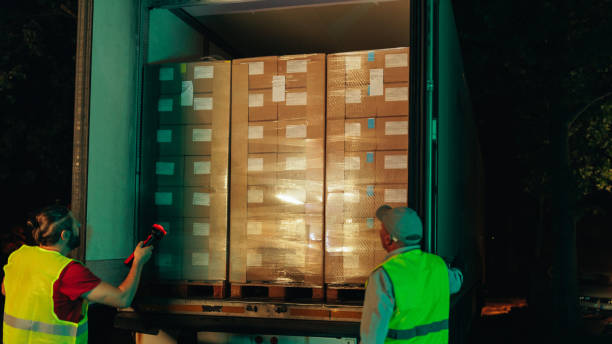Introduction
The global supply chain plays a crucial role in the international trade of goods, ensuring the seamless flow of products from one destination to another. With the rapid globalization and increased complexity of supply chains, the need for robust security measures has become more pronounced.
Cargo inspection services have emerged as a critical component of securing the global supply chain. These services involve the thorough examination of cargo, including its packaging, contents, and transportation methods, to mitigate potential risks and enhance security. By employing advanced inspection technologies and techniques, cargo inspection services help identify and address security vulnerabilities, ensuring the integrity of supply chain operations.
One of the key roles of cargo inspection services is combating the ever-present threat of terrorism. With global terrorism becoming an unfortunate reality, the risk of terrorists exploiting the supply chain to smuggle weapons, drugs, or other harmful substances has grown significantly. Cargo inspection services work closely with border control agencies and customs officials to prevent such illicit activities, thus safeguarding nations from potential security threats.
Moreover, cargo inspection services play a vital role in preventing the entry of counterfeit and substandard goods into the market. Counterfeit products not only infringe upon intellectual property rights but also pose serious health and safety risks to consumers. By ensuring that cargo meets the necessary quality standards and is authentic, inspection services protect consumers and promote fair competition.
Another important aspect of cargo inspection services is the identification and prevention of smuggling activities. Smuggling can encompass a wide range of illicit activities, including the trafficking of drugs, arms, or even endangered animal species. By employing state-of-the-art scanning technologies such as X-ray machines, radiation detectors, and drug-detection devices, these services are able to detect hidden contraband and deter criminals from exploiting the supply chain.
Additionally, cargo inspection services help address logistical challenges and minimize supply chain disruptions. By conducting thorough inspections and verifying compliance with regulations, they ensure that shipments meet all necessary documentation requirements, reducing the risk of delays at customs and improving overall efficiency. This is particularly crucial for perishable goods or time-sensitive shipments, where any delay can result in spoilage or financial losses.
The adoption of advanced technologies has revolutionized the cargo inspection industry, further enhancing its effectiveness in securing the global supply chain. Modern systems use artificial intelligence, automation, and machine learning algorithms to analyze vast amounts of data in real-time, detecting anomalies and patterns that may indicate security threats. These technologies enable faster and more precise inspections, reducing the need for manual intervention and streamlining the process.
While cargo inspection services play an indispensable role in securing the global supply chain, there are certain challenges that need to be addressed. The sheer volume of cargo being transported worldwide poses a significant logistical challenge for inspection services, as they must balance thorough inspections with the need for swift movement of goods. Additionally, international cooperation and information sharing among countries are vital to effectively combat transnational smuggling and terrorism.
Conclusion
In conclusion, cargo inspection services have emerged as an essential component of securing the global supply chain. Through the use of advanced technologies, these services help identify security vulnerabilities and prevent illicit activities, such as terrorism, smuggling, and the circulation of counterfeit goods. By ensuring the integrity of supply chain operations, cargo inspection services play a vital role in safeguarding nations, protecting consumers, and promoting efficient and secure global trade.


